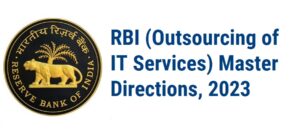Page Contents
- What are Compliances For Partnership Firm in India?
- What are Partnership Firms in India?
- Registration Process for Partnership Firms:
- List of Important Compliances For a Partnership Firm
- Income Tax Compliances:
- GST Compliances:
- Other Mandatory Compliances:
- Penalties and Consequences of Non-Compliance for Partnership Firms
- Benefits of Compliance for Partnership Firms
- Documents required for Online Partnership Compliance
- FAQs: Partnership Firm Compliance in India
What are Compliances For Partnership Firm in India?
In the context of businesses, compliances refer to the actions a company or firm must take to adhere to a set of rules and regulations established by various governing bodies. These regulations can come from the government, industry standards organizations, or even the company itself (internal policies). Partnership firm compliances are the mandatory actions a partnership firm must take to operate legally and smoothly in India. These actions ensure the firm adheres to various regulations set by the government and other authorities. Compliances for Partnership Firm help strengthen a transparent and credible figure of firms in Public, as well as support in a lot of business activities.
What are Partnership Firms in India?
Partnership firms, a prevalent business structure in India, offer an attractive option for small and medium-sized businesses. They combine the ease of setup with the flexibility of shared ownership and management. Here, we’ll delve into what partnership firms are, how to register one, and the essential compliances to navigate.
Understanding Partnership Firms:
A partnership firm is a business entity formed by an agreement between two or more individuals (partners) who come together to carry on a business and share the profits or losses. The key aspects of a partnership firm include:
- Minimum and Maximum Partners: A minimum of two partners is required to form a partnership firm, and the maximum number of partners cannot exceed 20 (except for banking firms).
- Shared Ownership and Management: Partners share ownership of the firm’s assets and liabilities in accordance with the partnership deed, a legal document outlining the rights, responsibilities, profit-sharing ratio, and dispute resolution mechanisms between partners.
- Unlimited Liability: A crucial characteristic of partnership firms is unlimited liability. This means that partners are personally liable for the firm’s debts and obligations beyond the extent of their capital contribution.
Registration Process for Partnership Firms:
While registration of a partnership firm is not mandatory under the Indian Partnership Act, 1932, it offers several benefits, including:
- Enhanced Credibility: Registration lends legitimacy to the firm, fostering trust with potential clients and investors.
- Easier Access to Loans: Banks and financial institutions are more likely to provide loans to registered firms.
- Limited Liability for Incoming Partners: If a new partner joins a registered firm, their liability for pre-existing debts is limited to their capital contribution.
Here’s a simplified breakdown of the registration process:
- Drafting a Partnership Deed: A well-drafted partnership deed is crucial. It’s advisable to consult a lawyer for this step.
- Registration with the Registrar of Firms (RoF): The partnership deed needs to be registered with the RoF in the state where the firm’s main office is located. The process typically involves submitting the deed, along with a prescribed fee and application form.
- Obtaining a PAN Card: Every registered partnership firm requires a Permanent Account Number (PAN) from the Income Tax Department.

List of Important Compliances For a Partnership Firm
Partnership firms, a popular choice for small and medium businesses, offer a relatively simple setup process. However, ensuring smooth operations and avoiding legal roadblocks necessitates staying compliant with various regulations. This section outlines the key compliance requirements for partnership firms in India.
Income Tax Compliances:
- PAN Card: Every partnership firm needs a Permanent Account Number (PAN) from the. Every partnership firm needs a Permanent Account Number (PAN) from the Income Tax Department. This unique identifier is crucial for tax purposes. It is used for filing tax returns, tracking financial transactions, and ensuring transparency.
- Income Tax Return Filing: Partnership firms must file an Income Tax Return (ITR) irrespective of their income or loss. The designated form for them is ITR-5. This ITR captures the firm’s total income, expenses, deductions, and tax liabilities. Timely filing of ITRs ensures transparency and avoids penalties for late filing.
- Understanding Tax Implications: Partnership firms are taxed at a flat rate of 30% on their total income. However, each partner’s share of profit/loss is reflected in their individual tax returns, and they are taxed according to their income tax slabs. This ensures a fair distribution of tax burden based on each partner’s income level.
Choosing the Right ITR Form:
- ITR-4: Applicable for firms with a total income up to ₹50 lakh and income recorded on a presumptive basis. Presumptive taxation offers a simplified method of calculating taxable income based on an estimated profit margin for specific business categories.
- ITR-5: Mandatory for firms exceeding ₹1 crore in turnover or requiring a tax audit. ITR-5 is a more comprehensive form capturing detailed income and expenditure information.
Income Tax Slabs for Individual Taxpayers (Partner) in India (AY 2024-25) :
| Partner’s Income | Tax Rate | Surcharge (if applicable) | Total Tax |
| Up to ₹ 3,00,000 | Nil | – | Nil |
| ₹ 3,00,001 – ₹ 6,00,000 | 5% | – | 5% of income exceeding ₹ 3,00,000 |
| ₹ 6,00,001 – ₹ 9,00,000 | 10% | – | ₹ 15,000 + 10% of income exceeding ₹ 6,00,000 |
| ₹ 9,00,001 – ₹ 12,00,000 | 15% | – | ₹ 45,000 + 15% of income exceeding ₹ 9,00,000 |
| ₹ 12,00,001 – ₹ 15,00,000 | 20% | – | ₹ 1,35,000 + 20% of income exceeding ₹ 12,00,000 |
| Above ₹ 15,00,000 | 30% | 12% of tax payable (if income exceeds ₹ 1,00,00,000) | As per slab and applicable surcharge |
- This table reflects the individual income tax slabs for partners in a partnership firm. Each partner’s share of the firm’s profit or loss is reflected in their individual tax returns.
- The partnership firm itself is taxed at a flat rate of 30% on its total income.
- Health and Education cess @ 4% is also levied on the total tax amount.
- Surcharge of 12% is levied on income exceeding ₹ 1 crore, subject to marginal relief provisions.
GST Compliances:
- GST Registration and Return Filing: Partnership firms with an annual turnover exceeding ₹40 lakh (subject to change) must register for Goods and Services Tax (GST). GST is a destination-based tax levied on the supply of goods and services. Registered firms need to file regular GST returns:
- GSTR-1: This monthly return details outward supplies made by the firm.
- GSTR-3B: This consolidated return summarizes the firm’s tax liability for a specific month.
- GSTR-9 (Annual Return): This annual return provides a comprehensive overview of the firm’s GST transactions throughout the financial year.
Other Mandatory Compliances:
- TDS Return Filing: Firms acting as deductors (with a valid TAN) need to deduct tax at source (TDS) on specific payments exceeding prescribed limits (rent, interest, professional fees, etc.). TDS challans must be deposited with the government within stipulated timelines. Different forms are used for TDS returns depending on the payment nature.
- EPF Return Filing: Firms employing more than 20 people must register for the Employee Provident Fund (EPF) scheme. The EPF scheme contributes towards employees’ retirement savings. Employers and employees contribute a specific percentage of their salary towards the EPF. Regular filing of EPF challans ensures timely deposits into employee accounts.
- Accounting and Bookkeeping: Proper books of accounts are mandatory if annual sales/turnover/gross receipts exceed ₹25 lakh or income from business surpasses ₹2.5 lakh in any of the preceding three financial years. Maintaining accurate books of account facilitates financial reporting, tax calculations, and helps assess the firm’s financial health.
- Intimation of Changes: Any modifications to the partnership deed (addition/removal of partners, capital contribution changes, or dissolution) must be intimated to the Registrar of Firms within 90 days. This also includes updates to the firm name, principal place of business, nature of business, and changes in partner information. Most of these services can be accessed at https://services.india.gov.in/
Penalties and Consequences of Non-Compliance for Partnership Firms
Adhering to important compliances is essential for smooth functioning and avoiding legal roadblocks for Partnership Firms. But what happens if a partnership firm neglects these requirements? Let’s explore the potential consequences of non-compliance:
- Financial Penalties: Regulatory bodies take non-compliance seriously. Partnership firms failing to meet their compliance obligations can face hefty monetary penalties. The severity and nature of the non-compliance will determine the size of the fine.
- Legal Action and Lawsuits: Non-compliance can escalate to legal action against the partnership firm. This could involve lawsuits filed by government authorities or even disgruntled stakeholders. The resulting litigation expenses and potential damage awards can significantly impact the firm’s finances.
- Reputational Damage: In today’s competitive landscape, a good reputation is paramount. Non-compliance can severely tarnish a partnership firm’s image, eroding trust among customers, suppliers, and potential investors. This can lead to lost business opportunities and hinder future growth prospects.
- Operational Disruptions: Regulatory actions or legal proceedings triggered by non-compliance can significantly disrupt a partnership firm’s day-to-day operations. These disruptions can manifest as financial losses, operational inefficiencies, and delays in business activities.
- Loss of Licenses and Registrations: Obtaining licenses and registrations are often crucial for legal business operations. However, non-compliance can lead to regulatory bodies revoking these licenses or registrations. This can severely restrict the firm’s ability to conduct specific business activities legally.
- Injunctions and Further Legal Issues: Courts may impose injunctions, essentially court orders prohibiting the partnership firm from engaging in certain activities until compliance is achieved. Violating these injunctions can lead to even more severe legal consequences.
- Criminal Charges: In extreme cases of deliberate non-compliance or fraudulent activities, individuals associated with the partnership firm, like partners or designated officials, may face criminal charges. These charges can result in fines, imprisonment, or even both, depending on the severity of the offense.
Benefits of Compliance for Partnership Firms
For partnership firms in India, adhering to compliances offers a multitude of benefits that go beyond just avoiding penalties. Here’s how staying compliant can empower your firm to thrive:
-
Enhanced Credibility and Reputation: Compliance demonstrates a commitment to responsible business practices. This fosters trust and confidence among stakeholders, including customers, suppliers, potential investors, and financial institutions. A compliant firm is seen as reliable and trustworthy, which can lead to increased business opportunities and collaborations.
-
Smoother Access to Credit and Funding: Financial institutions are more likely to extend loans and lines of credit to partnership firms with a strong compliance record. Demonstrating financial transparency and adherence to regulations makes your firm a more attractive borrower, potentially leading to better loan terms and interest rates.
-
Reduced Risk of Legal Disputes and Penalties: Compliance significantly reduces the risk of legal action or hefty fines imposed by regulatory authorities for non-compliance. This translates to significant cost savings and avoids the disruption and stress associated with legal disputes.
-
Streamlined Operations and Decision-Making: Maintaining proper accounting records, filing tax returns on time, and adhering to labor laws all contribute to more efficient and organized business operations. This allows for better financial planning, informed decision-making, and facilitates resource allocation for growth.
-
Improved Risk Management: Compliance processes often involve internal controls and risk mitigation strategies. By adhering to regulations, partnership firms can identify potential risks like tax liabilities or labor law violations early on. This allows for proactive measures to address these risks and minimize their impact on the business.
-
Peace of Mind and Focus on Growth: Knowing your firm is operating within the legal framework provides a sense of security and allows you to focus your energy on core business activities. You can concentrate on strategic planning, marketing, and product development, confident that the legal foundation of your firm is sound.
-
Attract and Retain Talent: A partnership firm with a strong compliance record can attract and retain top talent. Employees appreciate working for a company that adheres to labor laws and social security regulations, fostering a positive work environment and promoting employee well-being.
Documents required for Online Partnership Compliance
For Online Partnership Firm Registration:
- Proof of Identity and Address for Partners:
- PAN Card (copy) of each partner. This is a crucial document for tax purposes.
- Aadhaar Card (copy) of each partner. This serves as a valid address and identity proof.
- Passport (copy) or Voter ID (copy) can be submitted as alternatives to Aadhaar Card if not available.
- Partnership Deed: A well-drafted partnership deed is the foundation of your firm. It outlines the rights, responsibilities, profit-sharing ratios, and dispute resolution mechanisms between partners. Ensure you have a digital copy of the deed for online submission.
- Address Proof for the Firm’s Registered Office: You can use any of the following documents as address proof:
- Rent Agreement (copy) for the office space, if rented.
- Utility Bill (copy) like electricity bill or water bill for the office address, not older than 3 months.
- NOC (No Objection Certificate) from the landlord (if applicable).
Online Compliance Filing:
Once registered, your partnership firm needs to adhere to various regulations. Here’s a rundown of the documents typically required for online compliance filing:
- PAN Card of the Partnership Firm: Similar to partners, the firm itself needs a PAN card.
- Bank Account Details: This includes a copy of a cancelled cheque from the firm’s bank account.
- ITR (Income Tax Return) Documents: While filing your firm’s ITR (typically ITR-5), you may need supporting documents like sale and purchase invoices, depending on the nature of your business.
FAQs: Partnership Firm Compliance in India
-
Q: Do I need to register my partnership firm?
- A: While not mandatory, registering your partnership firm offers benefits like enhanced credibility, limited liability for incoming partners, and easier access to loans.
-
Q: What documents are required to register a partnership firm?
- A: You’ll typically need a well-drafted partnership deed, PAN card copy for each partner, proof of identity and address for partners (Aadhaar card, Passport, Voter ID), and address proof for the firm’s registered office.
-
Q: What are the key tax compliances for partnership firms?
- A: These include obtaining a PAN card, filing Income Tax Returns (ITR-5), undergoing a tax audit if exceeding turnover thresholds, and understanding individual partner taxation based on income slabs.
-
Q: Do I need to register for Partnership Firm GST?
- A: Yes, if your partnership firm’s annual turnover exceeds ₹40 lakh (subject to change), you must register for Goods and Services Tax (GST) and file regular GST returns.
-
Q: What other compliances are there?
- A: Partnership firms may need to comply with regulations related to TDS filing (deducting tax at source), EPF registration (for firms with more than 20 employees), maintaining proper books of accounts, and intimating any changes to the partnership deed to the Registrar of Firms.
-
Q: Why is compliance important for partnership firms?
- A: Compliance offers a multitude of benefits, including enhanced reputation, smoother access to credit, reduced risk of legal issues, streamlined operations, improved risk management, peace of mind, and the ability to attract and retain talent.
-
Q: What are the consequences of non-compliance?
- A: Non-compliance can lead to penalties, legal action, reputational damage, business disruption, license revocation, and even criminal charges in severe cases.
Disclaimer:
The content of this article is for information purpose only and does not constitute advice or a legal opinion and are personal views of the author. It is based upon relevant law and/or facts available at that point of time and prepared with due accuracy & reliability. Readers are requested to check and refer to relevant provisions of statute, latest judicial pronouncements, circulars, clarifications etc. before acting on the basis of the above write up. The possibility of other views on the subject matter cannot be ruled out. By the use of the said information, you agree that the Author / Treelife is not responsible or liable in any manner for the authenticity, accuracy, completeness, errors or any kind of omissions in this piece of information for any action taken thereof.









